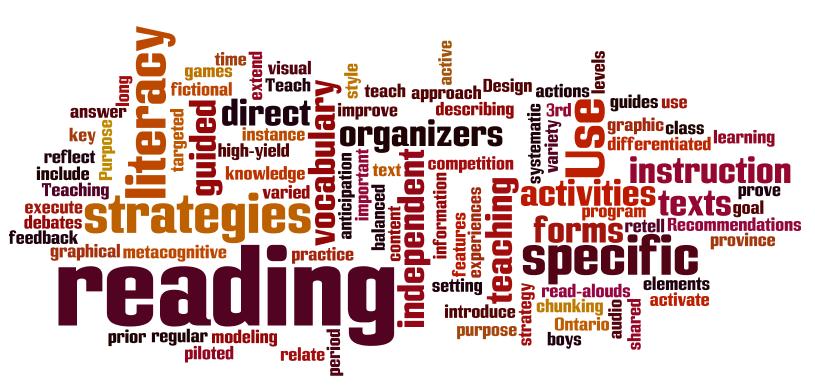First Let’s Talk About Reading Skills Then Only the Habit

Longman Dictionary of Applied Linguistics defines reading as the process of “perceiving a written text in order to understand its contents.” The written text here indicates written symbols of languages. Therefore, reading is making meaning from written symbols. Reading can be both aloud or silent. When you are reading this paragraph, perhaps you are reading silently and making the sense of what I’m trying to convey. Now, please read this statement aloud, yes please start reading aloud and feel the difference yourself. Have you read? That’s great. You read aloud so easily and subconsciously at the moment but I bet it took a great deal for your teacher to make you able to correlate each written symbol and their corresponding sounds and pronounce words accurately, which you just did without much effort and feeling that. Ok, just a moment for you to think, can we read silently without first being able to read aloud? Umm, generally not. Reading experts urge that a reader reads silently once s/he is fluent enough and to be fluent, one should have a considerable practice. And the practice comes from reading aloud. Therefore, the sub-skill of being aware of symbols and their corresponding sounds is a basic skill for reading.
In order to explain the process of reading more clearly, researchers have identified five components required for reading success. They are Phonemic awareness (sound- symbols relationship), phonics (name of the symbol and its sound), sight-word recognition, and fluency (NICHD, 2000), as well as vocabulary (Stahl & Bravo, 2010) and comprehension (Snow, 2002). Once we teach our children these five components of reading effectively, the children become independent readers and being an independent reader is the foundation for being successful in all areas of education. Check yourself now. You are reading this editorial independently because of these five components. Yes, our reading skill is based on these components and all other reading strategies we learn as we grow are also based on them. Similarly, our reading habit comes from these basic reading skills. Until and unless we children master these basic reading skills, we cannot expect a good reading habit in them. The ultimate goal of reading is to comprehend the text or grasp the meaning, which is equally important for any early grader to any university graduate.
Now as a teacher, future teacher, teacher educator or policy maker, we need to ask ourselves, in our reading lesson, do we really teach reading skills in our classes (like phonemic awareness, phonics, vocabulary, reading fluency and comprehension)? When we remark our children do not have a reading habit, have we assessed whether they have a proper reading skill? How do we assess the reading skills of children? Mostly in written? Isn’t that somehow funny that we assess oral reading skill in written? These are some questions I leave up to you to reflect on our teaching reading practices.
Presenting you a special issue on reading skills and reading habits, we have opened up a discussion on developing reading skills- reading skills required for an early grader to the skills required for a university graduate. Moreover, we also have tried to capture some of the practices of promoting reading habits in this issue. We have covered six posts in this issue, which all are based on the experience of the authors. Some of the posts explore the challenges in developing reading skills and reading habit followed by some ways out. Likewise, other offer wonderful strategies and tips for accelerating reading skills at school level and also in research level. Moreover, some post views reading as the means of exploration and experience. Interestingly, this issue brings up the writing from three ladies and three gentlemen, gender equality, isn’t it? It is so good to see them coming up with academic discourse here at Choutari.
Read our posts to explore more about reading. Please follow the link below, read, drop your comments for the writers, share the posts among your circle and most importantly, write your experiences, reflections, best practices, challenges and so on in your profession and email us at 2eltchoutari@gmail.com. We will take your writing in the process.
Finally, wish you all a joyous, colourful and brightest Tihar and Chhat festival. Have a good time. Here is the list of the posts for this issue:
- Let’s Borrow Something from Nepali Language Classrooms into English Classrooms: Ekraj Koirala (Siddhartha)
- Some Ideas of Developing Reading Habits in Children: Babita Chapagain
- How to Review Literature Effectively: Sharing My Research Experiences: Karna Rana, PhD
- Why There is No Good Reading Habit in Our Students: An Exploration: Nabina Rokka
- My Experience of Teaching Reading in Higher Secondary Level: Yashoda Bam
- A Professional Journey of Exploration, Experience and Expression: Balram Adhikari
Catch you up in the January issue.
Before leaving, I would like to thank all the contributors to this issue. Likewise, I would like to offer special thanks to Ashok Raj Khati and Karna Rana for their rigorous reading and review of the articles.

Follow me at Twitter: @G1Karki